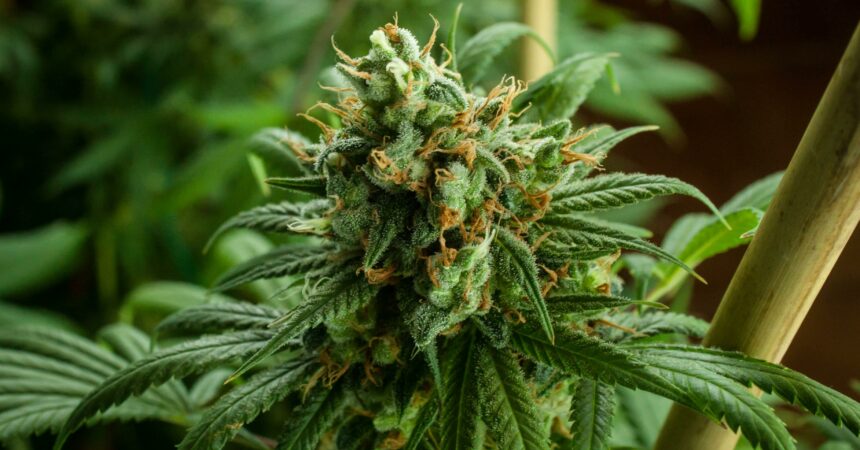In order to access this website you must be of legal age in your region.
Forward Commitment: The New Cannabis Industry Standard Benefiting Buyers and Suppliers

By Gregory Frye
Forward commitments are making life easier for cannabis suppliers and buyers as marketplace competition continues to intensify. A great example is Washington State, where there is now a lot more competition to find plant material among cannabis processors, says Monica Barry, supply chain director with Tamerlane Trading.
“Forward commitments allow our buyers and suppliers to focus on their core business instead of having to constantly be sourcing or selling material,” Barry says. “The buyer knows that the material will have been graded by Big Tree, who use the International Cannabis and Hemp Standards (ICHS) Fair Market Certification process to guide grading, scoring and certification.”
“So, they know the quality standard is there — it’s consistent, and they already know their yields off of it, so it’s just less work for them. The farmer can focus on growing and getting the product ready to sell rather than wondering who will be buying and for what prices.”
“Forward commitments inject certainty and stability into a typically uncertain industry,” explains Barry.
SIMPLIFYING THE PROCUREMENT PROCESS FOR EVERYONE
By embracing the forward commitment model, Tamerlane is using proven commodity trading strategies to standardize wholesale cannabis trade. Investopedia explains that, “forward commitments enable two parties to reduce the risks and uncertainties around a planned transaction in the future. For example, a producer of a commodity like wheat knows he must sell his crop at some point after the harvest. A futures contract with a forward commitment allows the producer to find a buyer in advance, locking in the sale price for the producer and the buyer over that same time period.”
This same process, applied to the cannabis market, is benefiting Tamerlane Trading clients in several ways. For instance, a buyer might commit to 100 pounds a week and know exactly what they’re getting and when it will be delivered. It’s as simple as signing an agreement and making a down payment as opposed to chasing material all the time.
“Forward commitments inject certainty and stability into a typically uncertain industry.”
“The buyer knows exactly what’s coming in and the supplier knows they’re getting a good price for their product,” Barry explains. “It also makes things easier for the supplier. Rather than piecing out their product to one buyer at a time, they know their product will be going to one buyer every week consistently until it’s gone. So, both parties are happy, and it works.”
When Tamerlane has a processor requiring a lot of plant material, they take the forward commitment model a few steps further. “We have suppliers who we know are going to have a lot of material yet to be harvested, and so we can take the processor out to these farms where they can view the product while it’s still in the ground,” Barry explains. “The buyer knows exactly what that plant looks like before it’s harvested, and that’s where the key to forward commitments comes in — making sure the product meets their standards.”
Tamerlane can also ensure that products are tested for pesticides and potency, making the process that much easier for buyers. Barry points out that through Tamerlane, buyers have the option of verified or non-verified products.
“Verified is when Big Tree has quality verified and graded every gram in each lot at the farm. Non-verified is when suppliers send us product information and it’s listed in our marketplace without the quality and product being verified by a company like Big Tree Grading,” she says.
“Although even when buyers love how that non-verified product looks, 75% of them will not buy it when they learn it hasn’t been graded. They value knowing that it’s been graded and checked by a 3rd party.”
SUPPLY AND DEMAND BALANCED WITH VALUE
Summer months, when the amount of product available on the market is especially low, tend to bring out the competition in everyone, Barry notes. “Forward commitments cover these processors, protecting them to ensure they have the product they need,” she says.
What’s more, as the industry goes through its seasonal ebbs and flows, forward commitments also help level out the market rates for indoor growers, protecting them and their buyers from fluctuating prices which would otherwise typically hinge on the seasonal availability of outdoor harvests.
“For example, instead of the indoor product going for $3/gram in the spring and summer, and then $2.25 in fall and winter, a buyer can come in and agree to buy all the supplier’s indoor flower at $2.75 a gram for the year,” Barry explains. “So the buyer is getting a deal in the spring and summer, and the supplier is getting a deal during the fall and winter because the price stays the same. Stability and certainty are created, which is good for business.”
“Stability and certainty are created, which is good for business.”
This is another key benefit for forward commitments, Barry continues — helping to balance supply and demand with pricing. With forward commitments, Tamerlane does all the heavy lifting for suppliers and buyers.
“Everything is done through us, so all they have to do is agree on product type, price point and any contingencies,” Barry says. “The main point is that it’s a simple process, which takes a lot of stress out of the equation.”
This also helps with overhead, eliminating the need for a salaried salesperson or procurement officer, she notes. “Tamerlane provides the sourcing, sales and quality verification via Big Tree, while administering all the paperwork, 3rd party transportation and payment details.”
BRINGING STANDARDS AND STRUCTURE TO THE CANNABIS INDUSTRY
With all the competition in the cannabis market today, Barry maintains that industry standards still have a long way to go.
“The overall goal for Tamerlane Trading and Big Tree Grading is to help standardize the market similar to other commodity markets,” she says. “Commodity and agriculture markets all rely on grading, brokerage and standardization. We would like to see that cannabis has a similar standardization.”
“By continuing to standardize wholesale transactions using forward commitments, quality verification and grading services, we are creating transparency, which most companies want. No one can thrive when it’s all over the place. There has to be structure.”
“There has not been a supplier that we’ve done this with that hasn’t been happy with the end result.”
Barry reveals that for Tamerlane’s clients, forward commitments have been one of the most positive things to come about for licensed operators and the industry as a whole.
“There has not been a supplier that we’ve done this with that hasn’t been happy with the end result. Everything works smoother for them, and because we make sure that payments are efficient and all the paperwork is done, our suppliers like forward commitments,” she says. “They like knowing they can look at their books and budget out, and know what they have coming in. It’s like starting out a new month with your sales already done.”

Gregory Frye is a storyteller, writer, editor and award-winning journalist with a love for meaningful collaboration. Most recently, he was part of the founding team at Green Flower Media, where he spent almost five years as executive online editor.
